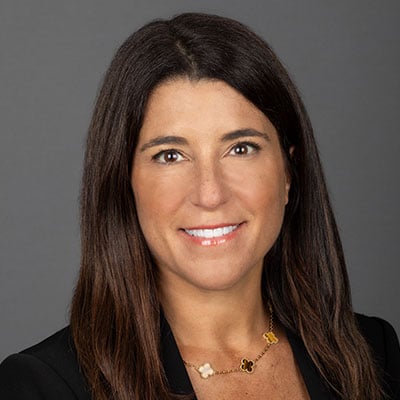INSIGHT: #MeToo at Two—What Have Organizations Learned?
Two years after the start of the #MeToo movement, organizations have learned some lessons for preventing sexual harassment in the workplace. Kirkland & Ellis LLP attorneys outline steps to guard against potential #MeToo issues and how to respond if they do arise.
On Oct. 5, 2017, the New York Times broke the Harvey Weinstein story, documenting decades of sexual harassment allegations against Weinstein, and catapulting the #MeToo movement into the headlines.
In the two years since, hundreds of high profile individuals—mostly men—have resigned, been fired, or faced dire professional consequences for allegations related to a broad spectrum of bad behavior. Similarly, many organizations across virtually every industry and workplace have suffered serious financial and reputational damage as a result of a #MeToo issue.
At the #MeToo movement’s two-year anniversary, it’s important for business leaders to focus on the broader themes that have emerged, particularly the importance of establishing effective workplace compliance controls and a strong corporate culture as a means to lower the risk of a #MeToo-related crisis within their own organizations.
The issues uncovered by the #MeToo movement are myriad and expanding, but there a few key “lessons learned” organizations should consider implementing to guard against #MeToo-related crises and respond to them should they arise.
#MeToo Violations Can Cost Organizations … A Lot
The Weinstein Company was forced to liquidate in bankruptcy. Michigan State University paid out $500 million to settle with Larry Nassar’s victims. Bill Cosby is in jail. Matt Lauer was fired. Al Franken resigned. Recently, the law firm Quinn Emanuel announced a plaintiff-side practice designed to inflict even greater financial pain on organizations with #MeToo offenders. #MeToo’s threat of financial and reputational harm is real. Organizations need to be prepared.
Don’t Just Have a Policy; Assess the Risk
Organizations should have clear and thorough workplace compliance policies. But policies alone may not be enough. To be truly prepared for a #MeToo-related crisis, organizations should assess the risk of one happening in the first place.
This involves answering tough questions, including, “Do our employees know and understand our policies in this area?”; “Are we consistently delivering up-to-date anti-harassment training?”; “Are we able to identify if there are patterns of behavior with some senior executives?”; and “Do we have a system in place where complaints are robustly reported, documented and tracked?”
If the answer to any of these questions is “no,” or “I don’t know,” there could be increased risk.
Getting it Right From the Top Down
Creating a safe, professional, harassment-free workplace first requires commitment from the very top of the organization. #MeToo is not just an HR issue. It’s everyone’s issue. The Board and senior management should give it the attention it deserves.
When an organization’s leadership sets aside time to review and weigh in on workplace compliance issues, those actions demonstrate a “tone at the top” that creates trust and sets an example for the rest of the organization.
Give HR Some Teeth
In some organizations, HR is perceived as the place where complaints go to die. And too often, the stories of #MeToo victims in high profile organizations start with something like this: “I went to HR, but I never heard back. So I felt like going public was my only option.” It doesn’t have to be like that.
HR is the front line in a company’s efforts to ensure a safe, professional workplace. An HR department that is well-resourced and empowered to both investigate #MeToo-related complaints and take swift corrective action where necessary, demonstrates to employees that the organization is listening to them. This approach can help resolve a #MeToo claim swiftly and appropriately.
Create a Way for Employees to ‘Report Up’
If two years of the #MeToo movement have taught us anything, it’s that bad behavior can happen at any level of an organization. An employee who has been harassed by a senior executive should have a way to report it without fear of retaliation. But often, reporting harassment by a senior executive through an organization’s normal channels can just lead back to the accused senior person.
Companies should consider whether additional, alternate lines of reporting (like a direct line to board) may be appropriate when it comes to senior executives.
Prepare for the Crisis Before it Happens
No matter how well an organization guards against it, a #MeToo event can still happen. And a flat-footed or tone deaf public response can turn an isolated incident into an all-out crisis. To prevent this from happening, organizations can coordinate with crisis advisors, legal counsel and internal stakeholders to develop a crisis response protocol ahead of time. That way, if a #MeToo allegation arises, the organization can be prepared with consistent messaging, effectively scope the problem, and empower the right people to quickly resolve it.
In the last two years, many organizations have learned these #MeToo lessons the hard way. Yet, the common theme of these “lessons learned” is that organizations can get in front of these issues. They can establish better controls. They can be proactive instead of waiting for something bad to happen. And they can empower their people to act and resolve #MeToo-related issues swiftly and effectively.
The organizations that do so will not only position themselves to weather a #MeToo crisis, but will both enhance their internal culture and also safeguard their most valuable assets: their people.
This column does not necessarily reflect the opinion of The Bureau of National Affairs, Inc. or its owners.
Author Information
Kim Nemirow is a partner in the Kirkland & Ellis Government & Internal Investigations practice in Chicago after living and practicing in Asia and Latin America. She has more than 15 years of experience advising multinational organizations and individuals in DOJ and SEC investigations, internal investigations and compliance matters.
Lauren Casazza is a New York partner in the Litigation practice who established Kirkland’s Crisis Response practice. She also leads internal investigations for corporations in highly sensitive matters and advises clients on policies, procedures and compliance issues.
Bobby Earles is a litigation partner in the Chicago office of Kirkland & Ellis with first chair trial experience. He focuses his practice on complex commercial litigation, internal investigations, and bankruptcy litigation.


